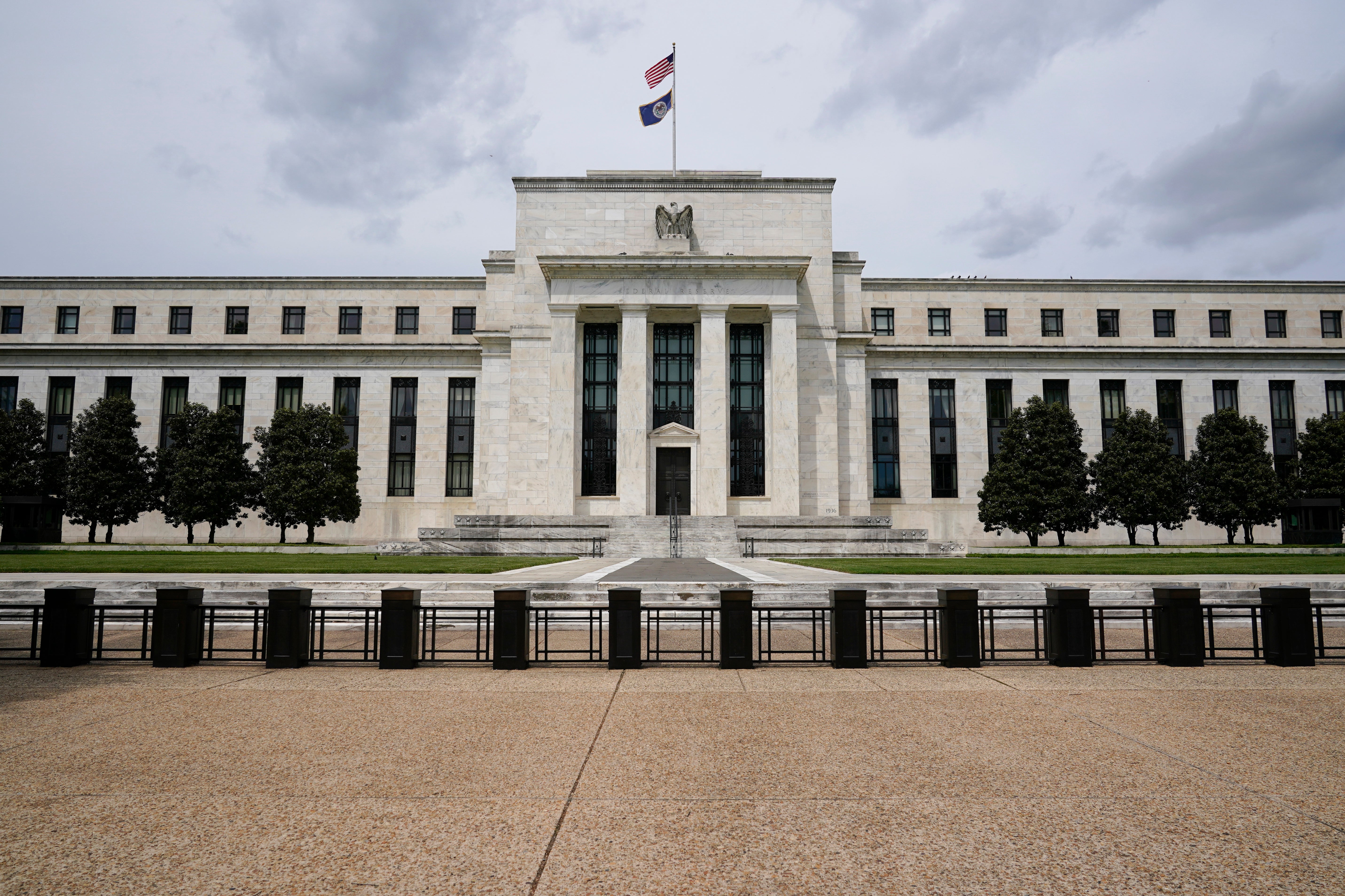Fed survey: US economy strong but hindered by bottlenecks
The Federal Reserve’s latest nationwide business survey has found that the economy strengthened further in late May and early June, despite supply-chain bottlenecks that led to price hikes

Your support helps us to tell the story
From reproductive rights to climate change to Big Tech, The Independent is on the ground when the story is developing. Whether it's investigating the financials of Elon Musk's pro-Trump PAC or producing our latest documentary, 'The A Word', which shines a light on the American women fighting for reproductive rights, we know how important it is to parse out the facts from the messaging.
At such a critical moment in US history, we need reporters on the ground. Your donation allows us to keep sending journalists to speak to both sides of the story.
The Independent is trusted by Americans across the entire political spectrum. And unlike many other quality news outlets, we choose not to lock Americans out of our reporting and analysis with paywalls. We believe quality journalism should be available to everyone, paid for by those who can afford it.
Your support makes all the difference.The Federal Reserve's latest nationwide business survey found that the economy strengthened further in late May and early June, despite supply-chain bottlenecks that led to price hikes.
The Fed said Wednesday that seven of its 12 regional bank districts reported strong price increases with some businesses expressing concerns that the supply chain disruptions would push prices even higher.
The U.S. economy is rebounding strongly from the recession brought on by the coronavirus pandemic. That has led to a surge in people seeking everything from new cars to hotel stays, leaving businesses struggling to find enough components and employees to meet the demand.
“While some contacts felt that pricing pressures were transitory, the majority expected further increases in input costs and selling prices in the coming months," the Fed said in its latest beige book report, based on interviews with its business contacts around the country.
The report said that business sectors dealing with transportation, travel and tourism, and manufacturing all experienced above-average economic growth in the period.
But the survey also found that the supply-chain disruptions led to shortages of materials and labor, along with low inventories and constrained sales of many consumer goods.
“A report like this would have roiled markets several decades ago,” said Robert Brusca, an economist with FAO Economics. “There are lots of shortages and prices rising and input costs going up and labor in short supply.”
The Fed survey was based on interviews by the Fed's 12 regional banks with business contacts in their regions. It will form the basis for discussions on the economy when central bank officials next meet on July 27-28.
The expectation is that after that meeting the central bank will keep interest unchanged near a record low of zero percent as a way to bolster the economy as it rebounds from last year's pandemic recession.
The survey found that three-fourths of the Fed's districts reported either slight or modest job gains with demand strongest for low-skilled workers, with labor shortages often cited as the reason that firms could not fill their vacancies.
“All districts noted an increased use of non-wage cash incentives to attract and retain workers,” the Fed said with many businesses expecting the difficulty in finding workers to extend into the early fall.
Federal Reserve Chairman Jerome Powell delivered the Fed's twice-a-year monetary report to Congress on Wednesday. In his testimony, Powell suggested that inflation, which has been surging as the economy strengthens, will remain elevated in coming months but will then moderate.
Powell was upbeat in his views on the economy, saying growth is on track “to post its fastest rate of increase in decades” but that there was still a long way to go before the labor market is fully healed.